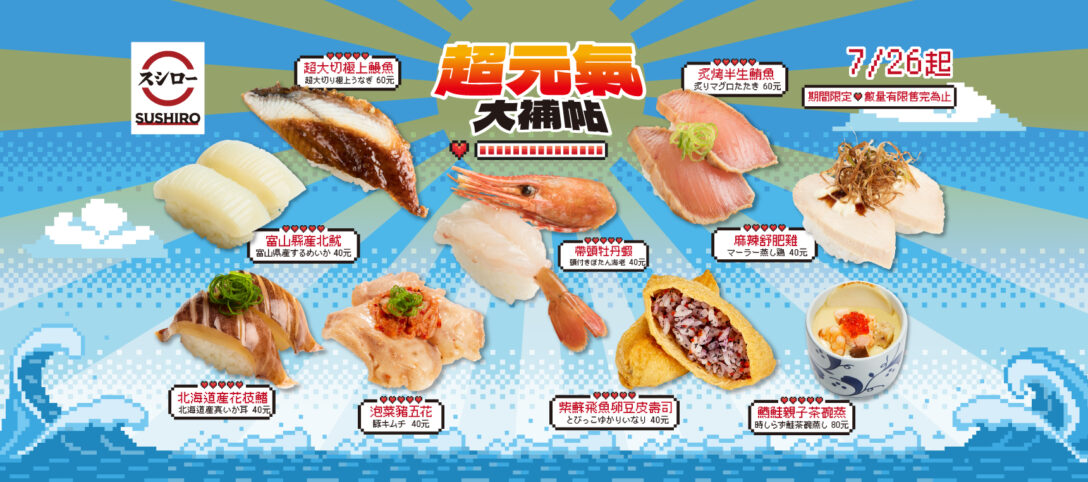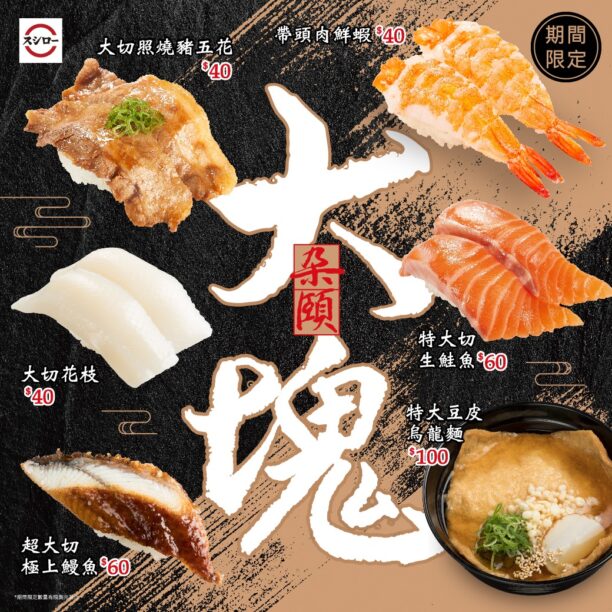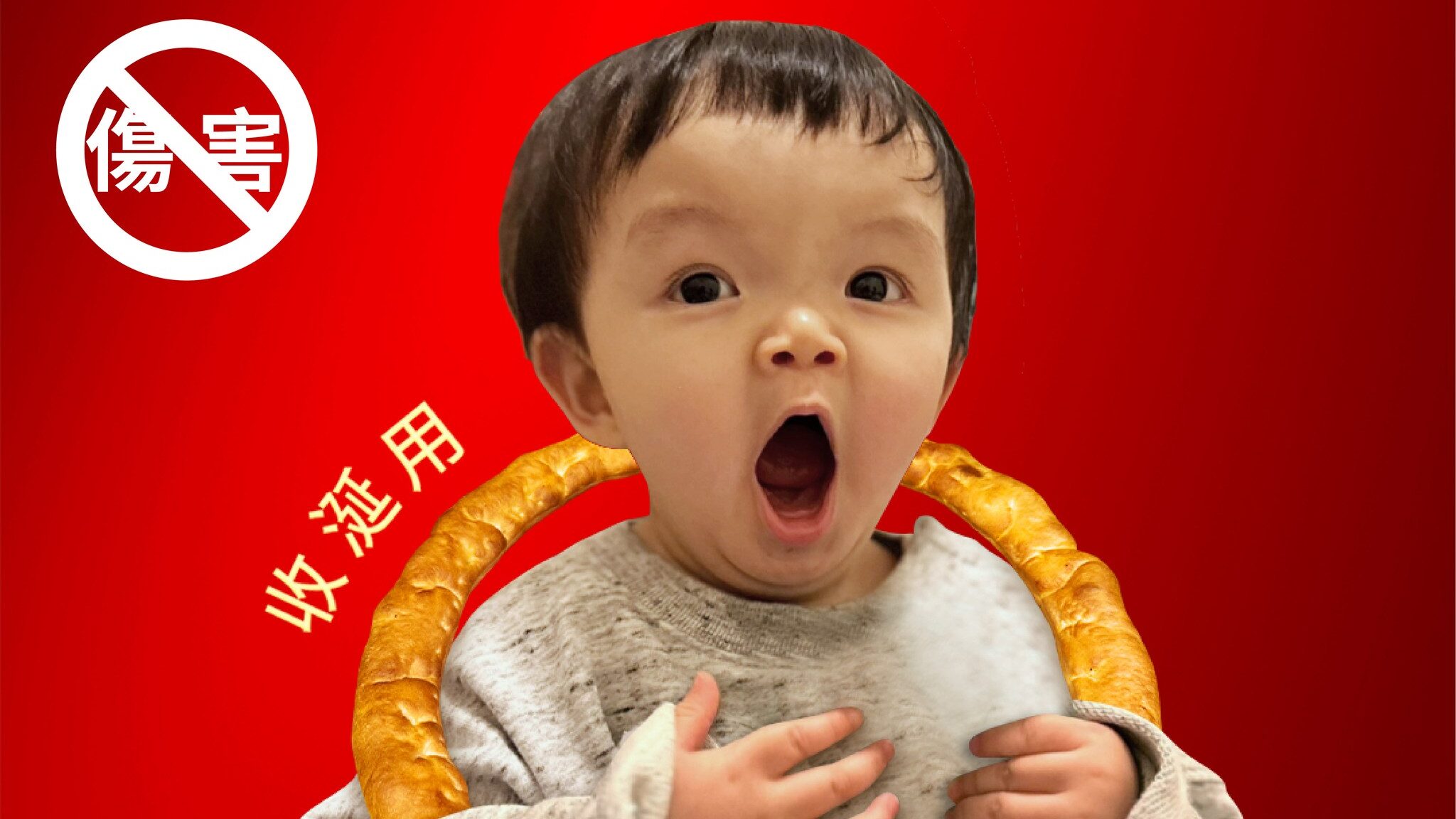Controversy broke out recently when a group of 27 college students devoured two pots of free rice at a stir-fry restaurant, refused to accept noodles instead on being informed there was no more rice, and then left negative reviews for the restaurant. (“Rice chaos shows empathy needed,” an editorial in the Taipei Times observed mildly).
Kids behaving badly, then. The funny thing is that, since then, the owner of the restaurant has become rather well-known, to the point where I’ve seen friends post selfies with him. But this isn’t the first time we’ve seen bizarre food-hoarding behavior in Taiwan.
 photo credit: Sushiro
photo credit: SushiroIn 2021, the Sushiro restaurant chain offered unlimited free sushi to any customer whose name contained the character for “salmon.” In the days that followed, it emerged that people were legally changing their names in order to score free sushi, with many reports of Sushiro restaurants raided dry by customers with outlandish salmon-themed names. These individuals would change their names, gorge on unlimited sushi, and then change their names back, the official process for changing one’s legal name being relatively simple and inexpensive in Taiwan.
 photo credit: Sushiro
photo credit: SushiroAround 400 people exploited the promotion, which led to anger over wastefulness when it was reported that some customers were eating only the salmon and not the rice part of their sushi bonanza. Memorably, one customer seems to have narrowly averted disaster after using up his three legally available name changes; he nearly ended up stuck with his preposterous salmon name (“Zhang Salmon Dream”). Fortunately, a lawyer eventually found a legal loophole allowing him to change his name once more, provided his father also switched to the new one.
At other times, there have been scenes of panic buying in Taiwan resembling a zombie movie. It’s not surprising that COVID-19 led to panic buying, with people stocking up on instant noodles, preservable foods, and household goods, in case the situation went south and people found themselves unable to leave their homes for significant spans of time.
But we’ve also experienced panic buying and runs on staple goods like eggs and toilet paper, sometimes simply in anticipation of price hikes by the major hypermarket chains. Why would people hoard toilet paper when prices were going up by only a few NT? Part of the problem is low wages–college graduates in Taiwan sometimes make only 22,000 NT per month (roughly $700 USD), long derided as the infamous “22k” starting wage. For many in Taiwan, then, every penny matters.
That’s capitalism for you. But maybe it also reflects the extent to which large and powerful corporations control prices in Taiwan. Reports of price hikes at major chains led to government investigations as to whether the price hikes were fair, or deliberately planned in order to induce panic.
Viewed from this angle, the “salmon chaos” may represent an attempt by young people to gain at least some agency, if only against a big restaurant chain. In other cases, as with the recent rice incident, a mom-and-pop establishment might be unfairly targeted.
Scenes of stores emptied of toilet paper or instant noodles may look like something out of World War Z, maybe because the sordidness of capitalism itself is just torn straight from a zombie flick. (At a time of grotesquely unaffordable real estate prices in Taipei, one would have to not eat or drink for more than fifteen years in order to be able to afford a home. It really would help to be a zombie.)
It seems reasonable to ask whether we’re the survivors who are raiding the supermarkets, convenience stores, and the like for supplies and sustenance—or are we ourselves the zombies? Heck, Taiwan’s seemingly infinite variety of cheap convenience store meals already suggests a population halfway to mindless zombiehood.


Still, the joke often goes that Taiwanese just love lines—that if you see a bunch of people lined up in front of a store, you might simply join the queue. I’ve seen lines for all manner of things; sometimes for international chains entering Taiwan, like Krispy Kreme, or a pop-up for In-N-Out. And then, each part of Taiwan’s food culture has its own famous, hyperlocal must-eats. You’ll often see long lines in front of all of these. But chain stores, which offer no sense of local distinctiveness, may have developed a need to engineer these periodic crazes to drum up interest from customers. That could also explain their need to invent an endless variety of new products, sometimes with limited-time offerings, because of that lack of built-in local enthusiasm–the most famous recent example may be the weird novelty products from Pizza Hut Taiwan, which include everything from boba pizza to duck’s blood pizza.

When corporatized, cookie-cutter megaretailers replace mom-and-pop establishments, and every store in the urban landscape is just a replica of a store you can find elsewhere, everything becomes a copy of a copy of a copy. That’s the degradation of the urban fabric, it seems. (Or it’s just capitalism.)






